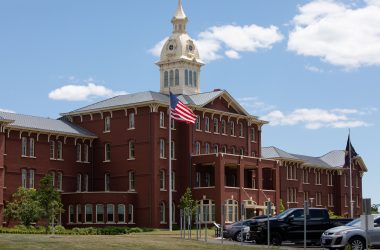The summer following Oregon kids’ return to school from pandemic closures in 2021, the state allocated record funding for summer learning.
It was vital to getting tens of thousands of students caught up, lawmakers said at the time, and “the beginning of really talking about a full year of school,” then-Senate President Peter Courtney told the Capital Chronicle. Robust funding was allocated the following year in 2022, too, coupled with hundreds of millions in federal COVID-relief dollars. The number of kids enrolled in summer learning programs went from 13,000 in 2020 to more than 100,000 in 2022, according to data from the Oregon Department of Education. Districts and community groups had access to more than $150 million in state funding each of those two summers.
Then, in the summer of 2023, they got nothing after lawmakers failed to allocate anything extra beyond the minimum that most districts spend on summer learning each year.
For the past six months, Rep. Susan McLain, D-Hillsboro, has been meeting with leaders from the Phoenix-Talent, Hillsboro and Forest Grove districts, as well as with the Boys & Girls Club and YMCA to work on options for funding summer programs.
“Both the legislators and the governor’s office felt this was important work that we had not completed,” she said.
The result: In the upcoming February session, she’ll propose sending the Oregon Department of Education $50 million for the state’s 197 school districts and 19 education service districts to share with community-based organizations that offer programming.
“This is a one year fix only,” McLain said.
Her proposal would create a workgroup to study and propose solutions for sustainable, consistent funding in the future.
The proposed $50 million is about one-quarter of the $200 million districts and groups had access to during the summer of 2021, but officials say it would help.
“There’s never enough right?” said Beth Unverzagt, director of the nonprofit Oregon Afterschool & Summer for Kids Network, or OregonASK.
She said a lot of summer programming is also about social and emotional learning, child care, career development and providing kids with resources for life beyond the classroom. Unverzagt said funneling money through the districts to community groups will limit which ones can expand offerings and what they can provide, but this summer’s proposed funding, and the method for distributing it, is considered a short-term solution. In the past, community organizations could apply directly for the money.
Unverzagt said she wants legislators to realize that summer can be valuable learning time for students.
This past summer, some community-based rural programs that were staffed in 2021 and 2022 shut down. School districts and larger groups such as YMCA and Boys & Girls Club cut field trips and other offerings. A survey from OregonASK found that despite increased demand statewide, about half of community groups were forced to scale back programs.
Among them was the Salem-Keizer School District, which could no longer offer popular robotics and science, technology, engineering and math, or STEM, courses that they had in years prior. The district has more than 40,000 students.
Suzanne West, who leads the district’s summer programming said $50 million wouldn’t go far but would help.
“I think it’s important for our Legislature to know we need it,” she said. “This isn’t a ‘nice to have’ (option); this is a ‘must have’ for the young people in our system.”
She said it’s likely the district would get about $4 million to $6 million from the state if the Legislature allocates the money this year. It would double the $4 million she currently has has to spend, which is covered in large part by federal Title I money meant to support low-income students.
Her district can’t plan on waiting for the Legislature to decide whether to approve the additional funding: Officials in Salem-Keizer have been planning for this summer since late 2023. They’ll focus on getting kids caught up from the pandemic, something West said will take several years to accomplish.
The district will offer credit recovery programs, bridge programs to help kids get on grade level, and a focus on helping kids in elementary school get intensive tutoring in core subjects. Any additional state money will just help them expand what they can offer to more kids, she said.
“We had young people that would have ordinarily attended preschool that didn’t. We also discovered that a lot of families, during the pandemic, didn’t send their children to kindergarten. They missed an important developmental year, not only academically but also socially,” West said. “We don’t know yet the outcomes from this experiment and we probably won’t for another generation.”
Oregon Capital Chronicle is part of States Newsroom, a network of news bureaus supported by grants and a coalition of donors as a 501c(3) public charity. Oregon Capital Chronicle maintains editorial independence. Contact Editor Lynne Terry for questions: [email protected]. Follow Oregon Capital Chronicle on Facebook and Twitter.
STORY TIP OR IDEA? Send an email to Salem Reporter’s news team: [email protected].

Alex Baumhardt has been a national radio producer focusing on education for American Public Media since 2017. She has reported from the Arctic to the Antarctic for national and international media, and from Minnesota and Oregon for The Washington Post. She previously worked in Iceland and Qatar and was a Fulbright scholar in Spain where she earned a master's degree in digital media. She's been a kayaking guide in Alaska, farmed on four continents and worked the night shift at several bakeries to support her reporting along the way.









